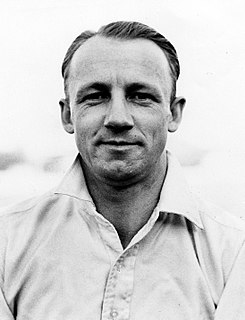A Quote by E. M. Forster
Science explained people, but could not understand them. After long centuries among the bones and muscles it might be advancing to knowledge of the nerves, but this would never give understanding
Related Quotes
I used to make my living by understanding people. And the way I learned to understand them was by observing them. I would sit in a train station or a bus station or a restaurant. And I would watch people. I would watch how they related to one another. I would try to get some insight into them and make them as predictable as I could in my mind.
By this we may understand, there be two sorts of knowledge, whereof the one is nothing else but sense, or knowledge original (as I have said at the beginning of the second chapter), and remembrance of the same; the other is called science or knowledge of the truth of propositions, and how things are called, and is derived from understanding.
But if men would give heed to the nature of substance they would doubt less concerning the Proposition that Existence appertains to the nature of substance: rather they would reckon it an axiom above all others, and hold it among common opinions. For then by substance they would understand that which is in itself, and through itself is conceived, or rather that whose knowledge does not depend on the knowledge of any other thing.
I began to understand that there were certain talkers - certain girls - whom people liked to listen to, not because of what they, the girls, had to say, but because of the delight they took in saying it. A delight in themselves, a shine on their faces, a conviction that whatever they were telling about was remarkable and that they themselves could not help but give pleasure. There might be other people - people like me - who didn't concede this, but that was their loss. And people like me would never be the audience these girls were after, anyway.
Making two possibilities a reality. Predicting the future of things we all know. Fighting off the diseased programming Of centuries, centuries, centuries, centuries. Science fails to recognise the single most Potent element of human existence. Letting the reigns go to the unfoldings faith, Science has failed our world. Science has failed our mother earth.
Christendom never came from an unbroken grave. It would have been buried in that grave, as Judas thought it was going to be, and as the Jews thought it was going to be, except there had been a resurrection from the dead. Then you can explain Christendom, churches, and literatures, if Christ rose again; but otherwise they cannot be explained at all. Our whole civilization rests on the broken Cross of the Master, and it is incredible that a civilization like this, in a world advancing steadily for eighteen centuries, has been founded on a lie.
You might prove doctrine from the Bible till doomsday, and it would merely convince a people, but would not convert them. You might read the Bible from Genesis to Revelations, and prove every iota that you advance, and that alone would have no converting influence upon the people. Nothing short of a testimony by the power of the Holy Ghost would bring light and knowledge to them -- bring them in their hearts to repentance. Nothing short of that would ever do.






































